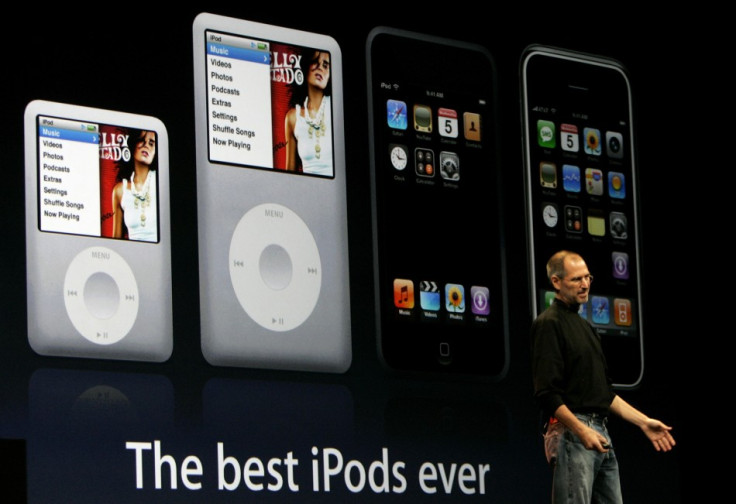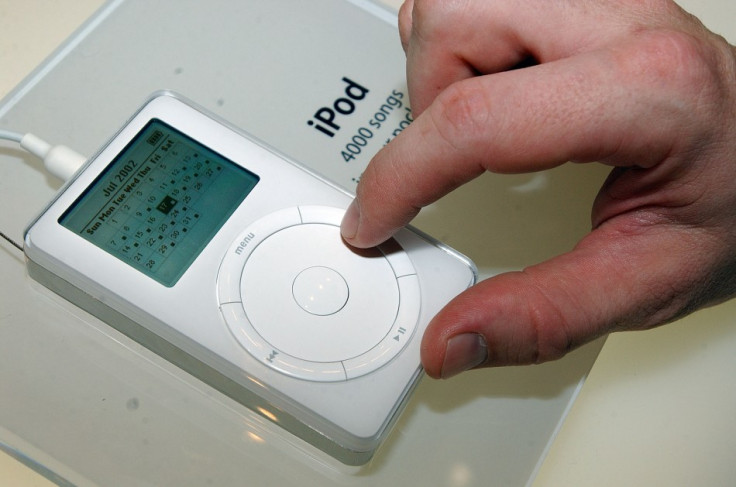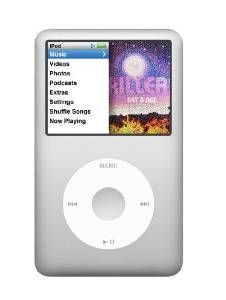Apple at 40: Why the iPod is Apple's definitive invention

Very few tech stalwarts draw as much equal ire and adulation as Apple. Yet, whether you are an ardent Windows supporter or an Android advocate there can be no question that a number of Apple's innovations have changed the way the world looks at technology.
Over four decades, the Cupertino company founded by Steve Jobs, Steve Wozniak and the often forgotten Ronald Wayne (who notoriously sold his 10% stake in the company for a pittance) has crafted products and software that have changed the face of computing and the mobile industry.
Despite Apple's current egregious levels of popularity and the ubiquity of the bitten fruit logo boastfully adorned on devices in pockets, bags and homes across the globe, there was a time when not all Apple touched was gold (or even Rose Gold).
In fact, there was one product that marked a significant turning point for Apple and paved the way for the 'iDevices' we know and love/tolerate/actively despite today – the iPod.

Ostensibly Apple's answer to the MP3 boom of the 1990s, the iPod's influence courses through the veins of all of Apple's current portable device range and the visual overlay of the OS X and iOS experience.
While the bulky, first generation build of the iPod was an overpriced, oversized beast that drew scorn from owners of equally capable MP3 players, its follow-up's inclusion of Windows compatibility (remember Musicmatch?), growing USB adoption and something as simple as a scroll-wheel started the bandwagon rolling with aplomb.

But providing the soundtrack to the lives of millions of people and turning Apple from a nerd-friendly cult brand into the mega-power it is today was not the iPod's crowning achievement. After all, while its design language can be described as definitively Apple-like, that can only be said because the iPod existed in the first place.
Take something as simple as the menu structure as an example. The no fuss line-by-line categorisation of albums and artists on the iPod Classic range was part of what made it so user-friendly with less of the faff associated with rival kit. I ask any reader of these words on an iPhone or iPad to take a quick look at the Settings menu for a moment; look familiar?
Aside from the functional, almost clinical overall appearance of the iPod that defines even the recently announced iPad Pro 9.7in and iPhone SE almost 16 years later, the most notable influence can be found in the touch-sensitive scroll wheel that debuted with the 2nd Gen model.
Long before we were swiping away poor matches on Tinder, tapping filters on Instagram and 3D Touch-ing homescreen icons, most of us were introduced to touch controls with a circular stroke as we skipped between artists from A-Z in seconds. Even the Candy Crushers of this world have their roots in the long-since defunct iPod Click Wheel games.
With the exception of the tiny Shuffle, the current iPod range appears more like an iPhone than ever before, with the iPod Touch in particular essentially functioning as an iPhone without a sim tray.
The iPod can also be held partly responsible for the cloying "If it's not an iPhone, it's not an iPhone" advertising campaign, as it embodies the intertwining of in-house software and hardware with the introduction of iTunes.
While it now acts as a bloated, oversaturated mess infecting millions of PCs and Macs with its overblown design, iTunes has somehow maintained its place as the proprietary software for all portable Apple products. Acting as the gateway to Apple's Spotify-rivalling answer to the current music-streaming market, Apple Music, it nevertheless all started with the bland, utilitarian iTunes interface that initially accompanied the iPod.
Although the iPod legacy lives on, its hardware future is all but over. The Touch, Nano and Shuffle are still hidden in the underbelly of Apple's online store if you look hard enough, but almost all of the Classic range has joined the company's graveyard of 'Vintage' and 'Obsolete' tech.
Yet, the market for Apple's forgotten portable pioneer has persevered on second hand marketplaces, with the 160GB storage model in particular equaling or exceeding its initial retail price.
I know I have one somewhere, unused for years despite being my musical companion for bus journeys, walks to college and family holidays, and to me it is priceless. Not necessarily for the memories, but for what it stands for: Innovation, simplicity, slickness and practicality.
In other words: quintessentially Apple.
© Copyright IBTimes 2025. All rights reserved.





















